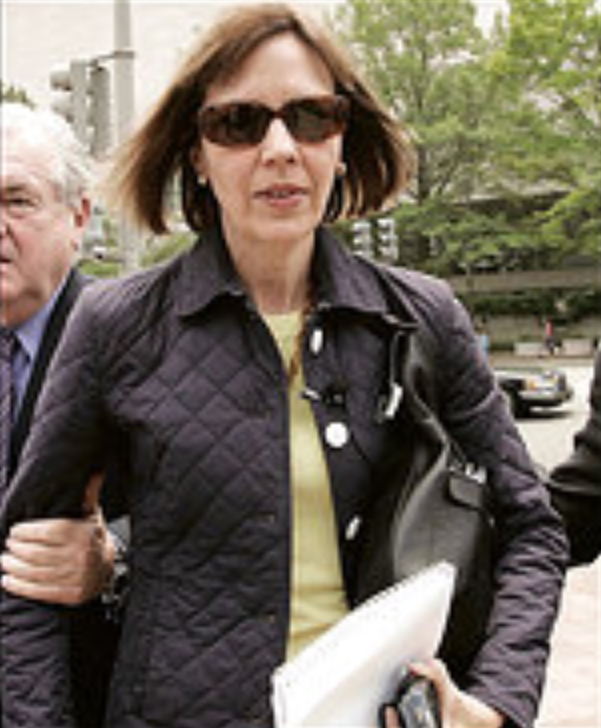Judith Miller’s book canceled due to recent Plamegate confession
Ernie Souchak, Editor-in-Chief
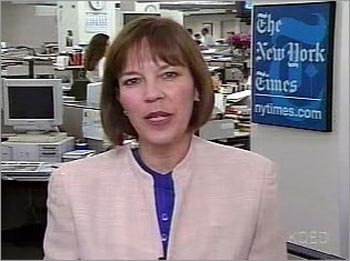
Fox News contributor and author Judith Miller recently confessed that Dick Armitage was not the person who exposed Valerie Plame as CIA, and that "a lot of people" in Washington knew this.
Miller went on to say that she was going to tell the story of what really happened during the Plamegate scandal her way in a book due out this spring.
Keep in mind that at that time, Miller had not planned to make a confession about Plamegate. When she realized what she had done, she immediately contacted Scooter Libby in hopes that he could do damage control.
Anyone want to guess what happened next?
Suddenly, with absolutly no warning and no explanation, the release of Miller's book was canceled.
Ouch. It's gotta hurt when you write your memoir and you can't release it because of your own big mouth.
Now Miller is refusing to answer any questions about Plamegate or the cancellation of her eagerly awaited book.
And she's not alone.
Her publisher, Simon & Schuster, and Fox News are also refusing to answer any questions.
The good news: former CIA attorney John Rizzo's recent willingness to discuss Plamegate and his acknowledgment that it was a CIA disinformation campaign could very well make hearing Miller's version of events unnecessary.
We'll see, won't we?
In any case, it might be a good time for you to consider another career change, Judith.

Just a suggestion.
Plamegate cover-up: Judith Miller is reaching out to Scooter Libby for help
Ernie Souchak, Editor-in-Chief
IP2P recently reported Judith Miller's confession that she knew former Deputy Secretary of State Dick Armitage was not the person who really exposed Valerie Plame as a CIA operative.
What we did not report at that time was that Judith Miller contacted Lewis "Scooter" Libby immediately after making that confession in the hope that Scooter could intervene, and convince us not to pursue this explosive story.
Clearly Scooter did not convince us.
However, we did find it interesting that the woman (Miller) who purportedly spent 80 days in jail before reaching out to Scooter for help during the Plame investigation reached out to Scooter for help within hours of a discussion about Dick Armitage.
Let's examine a possible reason for this interesting phenomena.
It's a known fact that FBI whistleblower Sibel Edmonds testified under oath that FBI wiretap recordings captured Undersecretary of State Marc Grossman exposing Brewster Jennings & Associates and Plame as CIA in 2001 to individuals connected to the American-Turkish Council.
What's not well known is this:
According to Edmonds, while he was at the State Department Grossman would brag:
“We just fax to our people at the New York Times. They print it under their names."
Wow! Armitage's friends at the American-Turkish Council must have liked hearing that.
Now, ask yourself this:
Why did Miller think Scooter could or would help her with her current predicament?
How did Miller know Dick Armitage did not expose Valerie Plame as CIA before Sibel Edmonds made it public that Marc Grossman did?
Judith,
Were you receiving stories via fax from Dick Armitage and his friends while you were employed at the New York Times?
Is Dick Armitage the mystery editor you mentioned that would not run your Plame story in the New York Times (a story Armitage clearly intended for Robert Novak to publish)?
http://youtu.be/4V4bIzP1bY8
Much more to follow..... until then, keep in mind the infamous words of Armitage friend and cohort William Casey.

Miller was contacted: however, she refused to comment.
Judith Miller exposed “Plamegate” as a cover-up
Ernie Souchak, Editor-in-Chief
When Judith Miller recently confessed that she knew it was not former Deputy Secretary of State Dick Armitage that exposed Valerie Plame as CIA, and that, "a lot of people knew."
Miller exposed "Plamegate" as a cover-up.
You see, the real scandal of "Plamegate" is that it's all a lie. And, Miller just admitted it!
Now that the lie is out in the open, individuals involved in the "Plamegate cover-up" are having difficulty answering the simplest of questions.
For example:
Former Deputy Secretary of State Dick Armitage is having a extremely difficult time expressing how he feels about the Miller confession. That is understandable considering the fact that Miller's confession disputes Armitage's confession that he was the leaker in the Plame case.
From: (redacted)
To: kara bue
Sent: November 6, 2013 at 3:50 PM
Subject: Media inquiry (Your no comment?)
Kara
After weeks of waiting for an answer, I was told that you personally were working on a response to the question I asked of Dick Armitage in the communication below.
I am now being told that you have decided to respond with "no comment"
What is most perplexing is that when I pressed your underling Chase Bakaly to confirm that the "no comment" response was coming from Dick Armitage personally, he responded with "no comment" to that question as well.
Kara, is the response of "No Comment" coming from former Deputy Secretary of State Dick Armitage personally?
(name redacted)
-----Original Message-----
From: (redacted)
To: kara bue
Sent: November 5, 2013 at 1:38 PM
Subject: Media inquiry (Your response)
Ms. Kara Bue
I have been informed that you are working on a response to the question addressed to Richard Armitage concerning Judith Miller's confession.
Kara, when can I expect to receive your response?
(name redacted)
-----Original Message-----
From: (redacted)
To: chase bakaly
Sent: October 17, 2013 at 10:04 AM
Subject: Media inquiry (Judith Miller's confession) Attn: Richard Armitage
Mr. Richard Armitage
Former New York Times reporter Judith Miller has gone on record stating that she knew that you were not the one who exposed Valerie Plame as an employee of the CIA. And, that "a lot of people knew" this.
Do you have a statement for the media, in light of Judith Miller's confession that she knew you were not the person who exposed Valerie Plame as CIA?
(name redacted)
While pondering the dueling confessions, keep in mind that there is sworn testimony and government documents that support Miller's confession.
http://youtu.be/8VAmyPD5sgI
Judith, tell us more.
We hope to have that for you soon.......
Why no Grand Jury? Chicago Tribune reporter John Chase involved in a crime. AGAIN!
Thomas Barton, Investigative Reporter
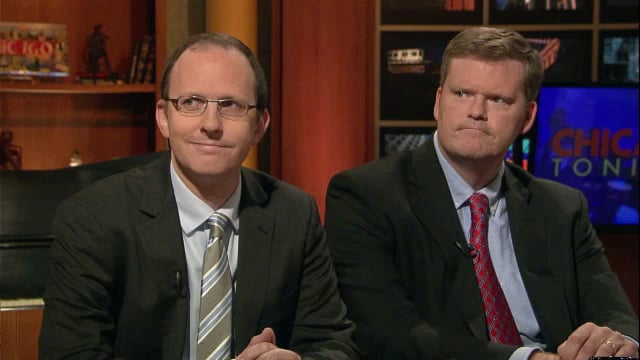
Chicago Tribune reporters John Chase and Jeff Coen are on-record claiming to have had access to all the Blagojevich wiretap tape recordings that were never made public.
The U.S Attorneys Office has gone on-record claiming that they did not give Chase or Coen access to the Blagojevich wiretap tapes and transcripts.
So, here's what we know for sure:
(1.) The Blagojevich wiretap tapes and transcripts are sealed by a federal protective order signed by Judge James Zagel. The only way to legally obtain them is from the feds.
(2.) Chase and Coen claim to have had accessed the recordings and have offered up a sample of taped conversations that were never made public as proof of possession.
(3.) The U.S. Attorney's Office insists that no one there provided the tapes or transcripts to anyone, including Chase and Coen.
Doesn't that mean Chase and Coen have confessed to being involved in the act of breaking a federal protective order signed by Judge Zagel?
Keep in mind that this isn't the first time Chase has received information as a result of someone acting above federal law. The existence of the federal wiretap made its way to Chase after someone in the Department of Justice broke the law and leaked it to him.
Why did U.S Attorney Patrick Fitzgerald enforce federal law when it involved New York Times reporter Judith Miller, but chose not to enforce federal law when it involved Chicago Tribune reporter John Chase?
Do the Chicago Tribune editors and reporters act with impunity outside of federal law?
And, hey, why are the Chicago and national media ignoring this story?
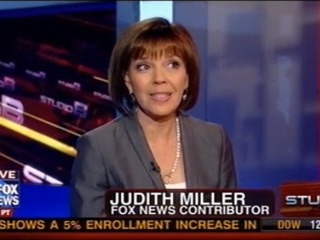
Does Judith Miller have any thoughts on the subject? We'll ask her.
Developing.......
“Golden,” the whitewashing of a Department of Justice crime spree
Ernie Souchak, Editor-in-Chief, Illinois PayToPlay & Hugo Floriani, Investigative Reporter
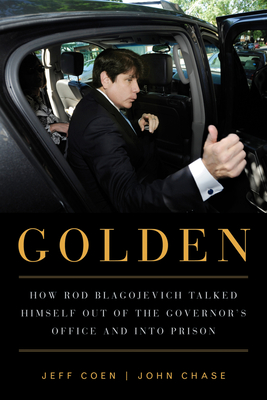
Chicago Tribune reporters Jeff Coen and John Chase wrote a 486-pages book that packs tedious and mundane details about former Illinois Governor Rod Blagojevich’s life, from birth to prison, around one key chapter that documents the role of former U.S. Attorney Patrick Fitzgerald in leaking information about his investigation of the ex-governor known nationwide as “Blago”.
The whitewash begins on the second page of the foreword entitled “Authors’ Note”: “We quote heavily from the recordings that federal agents made on phones used by the governor and others. All of those quotes come from transcripts of those phone conversations or the recordings themselves. We are grateful to those who provided case material that was outside of the public record.” (For ease of reading, we will italicize all quotations from the book.)
Those persons “who provided case material that was outside of the public record” remain unidentified throughout the book. But it soon becomes clear where they worked.
In an article written by Ernie Souchak posted on this website last September 14, we noted how the judge’s protective order, covering the transcripts of Blago’s phone conversations, stipulated that nothing prohibited Blago and his lawyers from telling his version of those recorded conversations. Blago and his attorneys were, though, ordered not to disseminate the transcripts that the feds gave them. Only the feds had permission to do that.
So, apparently, Coen/Chase secured those transcripts and recordings mentioned in the “Authors’ Note” from the feds. Here’s a question: Why was the information given to them?
Hold that thought.
The problem for the book’s core narrative – the arrest, trial and conviction of Blago – unfolds in Chapter 14 (pp. 257-295) entitled “I’ve got this thing…”
Background
On October 16, 2011, we concluded a ten-article series concerning U.S. Attorney Patrick Fitzgerald, which first posted here in on September 19, 2011, with this summary:
“So, what are the facts and circumstances that we know that collectively tend to prove, or sustain by their consistency…the hypothesis that Patrick Fitzgerald is a politically-driven, not jurisprudence-driven, prosecutor whose image as an intrepid, unbiased crime fighter is a media-created fabrication?
Here are a few headlines from Parts 1-9:
Fitzgerald acknowledged that someone leaked information to the Chicago Tribune, via a reporter for the Chicago Tribune, while the reporter, John Chase, sat mute in the front row of the news conference where the arrest of Blago was described as an effort to stop a crime spree. (Chase has told a source known to this writer that he would not identify who leaked him the information on First Amendment grounds.)
In fact, (1) Blago’s crime spree had, with Fitzgerald’s knowledge, been going on for several years. (2) Chase has not been called to account for tipping off Blago that his conversations were being recorded by the feds. (3) Eric Holder’s Department of Selective Justice has taken no steps – like that taken by Fitzgerald when he jailed Judith Miller of the New York Times in the Valerie Plame Case – to force Chase to reveal the source of the leak. And, (4) Fitz’s demeanor in discussing the leak in a press conference can be accurately described as disinterested.
The urgency to arrest Blago was manufactured out of whole cloth. The leak had to originate out of the DoJ. And, the closest outlet for the DoJ to the Chicago Tribune is Fitzgerald’s office. You connect the dots.
In retrospect, we know now that Richard Armitage was the confessed leaker in the Valerie Plame Case. We also know that Fitzgerald knew of Armitage’s confession before undertaking a long and costly investigation that convicted a key staff member of Vice President Cheney of a crime not connected to the Plame leak. And, that this media event, upon which the foundation of the Untouchable myth was built by the main stream media, was politically-driven.
The Plame “investigation” boiled down to a surrogate WWF-like wrestling match between two Big Beltway Boys: Armitage representing Powell – Libby for Cheney. With Fitzgerald as the biased referee. And, it will be so chronicled by unbiased historians in the future.
The arrest of Blago was timed, not to stop a crime spree, or the selling of a Senate seat – since the latter notion is built on the myth that, once Blago got paid for appointing someone, the act was immediate and irrevocable. The arrest was timed to save Congressmen Jesse Jackson, Jr., from criminal prosecution for bribing a governor in order to receive a Senate appointment. Connect the dots. It was about saving J.J., Junior.”
Chapter 14 – The Whitewash
The narrative here is significant, not just for what it reveals, but more for what it conceals.
The authors do not reveal the source for the information that Chase telephonically conveyed to Blago’s Spokesman, Lucio Guerrero, at approximately 10:30 p.m., Friday, December 4, 2008, namely, that the feds were listening in on Blago’s phone conversations.
Consequently, this question remains unanswered: Who leaked the information that Blago’s phone conversations were being wiretapped by the feds to the Tribune and Chase? Plus, why was that revelation leaked to the paper?
Then, why did Fitzgerald show no interest in tracking down the leaker?
We’re no closer today to answers to those questions after the 486 pages of whitewash.
Now, for the information in Chapter 14 that substantiates our October 2011 summary above:
Page 264: “Again, prosecutors noted the gravity of what Blagojevich had said. They were aware of the Balanoff meeting but had not recorded it.” (Tom Balanoff is president of the Service Employees International Union, Illinois Council, and the Vice President of its International Executive Board.)
How did the Coen/Chase know this information unless someone in the U.S. Attorney’s office gave them a blow-by-blow description of the investigation? Of course that’s what happened. The authors were scripted by the feds.
Page 267: “At the FBI’s listening room, there continued to be a mixture of thrilled disbelief and newfound resolve at what was being caught on the recordings. Agents believed they were capturing the sitting governor in incriminating conversations, and they played the calls for supervisors.
At one point, the FBI’s national director, Robert Mueller, was in town for a Chicago event. Having heard about the success of the Blagojevich operation, Mueller wanted to hear some of the recordings for himself. He stopped at the FBI’s Chicago headquarters on Roosevelt Road on the West Side near Ogden Avenue and took a seat in Rob Grant’s office. Agents had put together a disc of some of their favorite snippets for Mueller to hear.
Who was the guy dropping the F-Bombs? Mueller asked.
Well, that was the governor of Illinois, agents explained.
“You’ve got to be kidding me,” Mueller said, shaking his head, clearly pleased with how investigators were doing.”
This sounds like the testimony of an eyewitness to the event, given all the illustrative details. That eyewitness would be an employee of the FBI, or, someone from Fitzgerald’s office involved in the USAO’s investigation of Blago. This information clearly didn’t come from an audio tape or transcript of one of Blago’s intercepted calls, or from the building’s janitor.
It comes from a source intimately involved in the investigation.
Page 281: This portion of Chapter 14 explains the nature of the alleged urgency that caused the USAO to arrest Blago to, as Fitzgerald later claimed, stop an on-going crime spree.
“Fitzgerald had grown concerned that they had a sitting governor who had yet to make an appointment after working for weeks to see what he could get for himself in a deal for the Senate seat. They could let things go a little further, but it was starting to get risky that Blagojevichwould actually make a choice. Schar [Reid Schar, an Assistant U.S. Attorney, NDIL] said it would be derelict of those in the room to allow Blagojevich to make a decision. Everyone in the meeting believed the process had been corrupted, no matter how Blagojevich finally acted. To do something before he made a pick and out the investigation would at least make that corruption known, and the political could react to any pick by the governor.
In the end, there was agreement. Very soon, they would act, and likely on the morning of December 9, a Tuesday, the day before Blagojevich’s birthday and after a possible meeting the governor had been talking about with Jesse Jackson, Jr.”
What does “at least make that corruption known” mean? The USAO had been investigating Blago for years, and had compiled a substantial amount of evidence of corruption. At least, the goal should have been to arrest Blago when he accepted a bribe, and, also, arrest whoever paidthe bribe.
The real “risk” in letting Blago close a deal with the briber(s) negotiating with him on behalf of Jesse Jackson, Jr., was that they, too, would be implicated in a crime along with Blago. Whatever happened to the notion of intent to commit a crime? Blago went to jail – the briber(s) skated. That was the goal.
Pages 286-288: “’Jackson was the ‘uber African American,’ Blagojevich reminded Harris. He would consider what it would mean in black politics and how it would strengthen him, Blagojevich said, and don’t forget, third parties had offered him $1.5 million in fund-raising help.” (p. 286)
“’There’s tangible, concrete, tangible stuff from [Jackson’s] supporters,’ Blagojevich said, as Yang [Fred Yang, a pollster hired by Blagojevich] pressed him for more detail. ‘Well like, you know. You know what I’m talking about,’ the governor finally told him. ‘Specific amounts and everything.’” (p. 287)
“When prosecutors heard Blagojevich make the ‘tangible’ remark, they believed the Jackson proposal was in fact the way the governor was going to go.” (p. 288)
So, according to Coen/Chase, the feds believed that Blago was about to do a deal that would yield him $1.5 million for appointing Jesse Jackson, Jr. as a U.S. Senator from Illinois. That means that Blago was arrested to stop the commission of a specific crime, rather than to stop a crime spree.
If the USAO would have waited, both the bribee and the briber would have been caught and prosecuted. But the trap was sprung prematurely – for a reason.
Robert Blagojevich had a meeting scheduled with Jackson's money man Raghuveer Nayak on Friday, December 5. After learning from Chase, on the evening of December 4, that his conversations were being intercepted by the feds, Blago instructed his brother Robert to cancel that meeting.
The Duck Rule
If it looks like a duck; waddles like a duck; and quacks like a duck – face it, it’s a duck.
As we wrote back in October 2011: “The arrest was timed to save Congressmen Jesse Jackson, Jr. from criminal prosecution for bribing a governor in order to receive a Senate appointment. Connect the dots. It was about saving J.J., Junior.”
Remember that Jackson was the ’08 Co-chair of Obama’s Presidential Campaign Committee.
Conclusion
The book entitled Golden, written by two Chicago Tribune reporters who were granted special access to information coming from inside the investigation, is a 486-page apologia in defense of an improbable explanation behind the timing of the arrest of former Illinois Governor Rod Blagojevich.
It is a duck.
Was there a quid pro quo deal here? Did the USAO inside-leaker(s) say, “Guys, we’ll give you exclusive access to all this information, and in exchange you tell the story the way we want it told. We gotta deal?”
Don’t forget that Roland Burris, the man Blago appointed to the U.S. Senate, was the 60th vote in favor of ObamaCare. Had Blago, and those bribing him, both been arrested after the money was exchanged, would there have even been a second Senator from Illinois in the U.S. Senate when the ObamaCare vote was taken?



